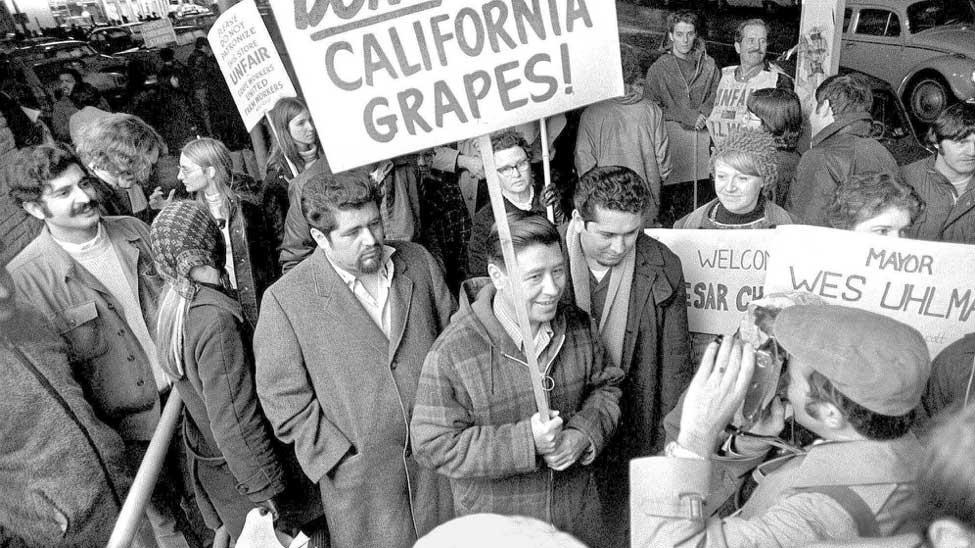We celebrate Hispanic Heritage Month as we learn about the lives of amazing individuals who exemplify strength, integrity, ingenuity, and compassion. Some of the names may be familiar, while others may be new. There are many more people whose stories are yet to be told. We welcome you to learn from, be inspired by, and share the stories of people whose experiences, advice, and strength can teach everyone so much.
Here is a curated list of lessons from our PBSLearningMedia site that celebrate the lives and accomplishments of some wonderful individuals.
Learn about Jovita Idar, a teacher, journalist, nurse, and civil rights activist who grew up in Texas and endeavored to expose injustices endured by Mexican Americans in the early 20th century, in this video from Unladylike2020.
*Sensitive: This resource contains material that may be sensitive for some students. Teachers should exercise discretion in evaluating whether this resource is suitable for their class.
Representation and Diversity on Stage: Raul Julia: All the World's a Stage (Grades 9-12)
Despite Raúl Juliá’s talents, opportunities for Latinx actors in the United States in the 1960’s were scarce. In this series of videos from the American Masters film Raúl Juliá: The World’s a Stage, Esai Morales, Edward James Olmos and others discuss how Raúl Juliá overcame discrimination and made a name for himself as an actor — without losing his Puerto Rican accent or changing his name — breaking new ground and helping to pave the way for Latinx actors today. In the Activity, students explore Shakespeare’s text in relationship to themes of diversity and representation.
Raul Julia: "Shakespeare Is Too Big..." (Grades 9-12)
Shakespeare is not just for one type of actor or audience member. In the clip “Bringing Myself to Shakespeare” from the American Masters film Raúl Juliá: The World’s a Stage, Raúl Juliá explores what it means to bring his own voice, culture, and experiences to Shakespeare. The second video, “All the World’s a Stage,” features prominent actors such as Rita Moreno and Andy Garcia performing a compilation of the film’s titular monologue from Shakespeare’s comedy As You Like It. The accompanying Activity encourages students to bring their own voices to the same monologue, in an arts-based activity that invites creative expression.
Latin American Contributions to the National Parks: George Melendez Wright (Grades 6-12)
George Melendez Wright, a pioneer in wildlife preservation, and Juan Lujan, a member of the Depression-era Civilian Conservation Corps (CCC), contributed to a long and meaningful legacy of Latin American leaders in national parks. Melendez Wright spoke out about the human treatment of animals in nature, while Lujan found meaning and identity in his work in national parks via the CCC.
The Unsung History Makers: Maria Moreno (Grades 5-9)
In this interactive lesson, use primary and secondary sources such as video and audio to unravel the mystery of Maria Moreno, a woman who fought for farm labor rights before Cesar Chavez and Dolores Huerta formed the United Farm Workers. Then search out an unsung history maker in your own community!
The Dolores Huerta Collection (Grades 6-12)
These four lessons, developed in support of PBS Independent Lens program Dolores, invite teachers and students to rectify the historical record by accurately situating Dolores Huerta as one of the most influential and formidable American civil rights leaders. By watching the full film, or integrating selected film segments within each lesson, students have the opportunity to be inspired by her ongoing work and struggle to secure civil rights for marginalized communities across many sectors of society.
Cesar Chavez: Labor Leader and Civil Rights Activist & Video: Cesar Chavez (Grades 3-7)
In this lesson, students will learn about the remarkable organizational skills of Cesar Chavez. In addition to watching a biographical video, they will analyze a photograph of Chavez during a protest against grape growers, and they will read a speech in which Chavez reflects on the accomplishments of the farm workers’ movement. They will then evaluate how Chavez’s tactics could be adapted to a current day labor-related issue.
Latino Americans (Grades 4-12)
What are the stories of U.S. Latinos and how do they inform the broader American narrative? From southern Florida to the San Juan Islands of Washington state, from the pre-history of the nation through today's most contentious issues, Latino experiences illuminate our country’s history and its struggle to live up to its ideals. This collection of lesson plans, videos and classroom resources invites teachers and students to explore the history, people and issues chronicled in the PBS series, Latino Americans. Along the way, it engages students in dramatic real-life stories and offers primary texts that serve the goals of the Common Core.
Latino Americans Share Their Experiences (Grades 6-9)
Students examine the challenges that three Latino Americans faced and overcame as they achieved success in their careers. This interactive lesson introduces students to playwright Lin-Manuel Miranda, actor Judy Reyes, and astronaut José Hernández through interviews from MARIA HINOJOSA: ONE-ON-ONE. Students ultimately consider how the life experiences and achievements these individuals describe helped shape how they identify as Americans in the 21st-century United States.
Latino Public Broadcasting Education Collection (Grades 5-12)
The programs of Latino Public Broadcasting are produced for dissemination to public broadcasting stations and other public media entities. Providing a voice for the diverse Latino community throughout the United States, Latino Public Broadcasting is funded by the Corporation for Public Broadcasting. In addition, LPB produces the acclaimed PBS documentary series VOCES, featuring the best of Latino arts, culture and history.
We hope that these resources will compliment your teaching around Hispanic Heritage Month. We would love to hear how you incorporate these lessons into your teaching. Email us at education@klrn.org and share with us how you utilized these resources into your classroom.



